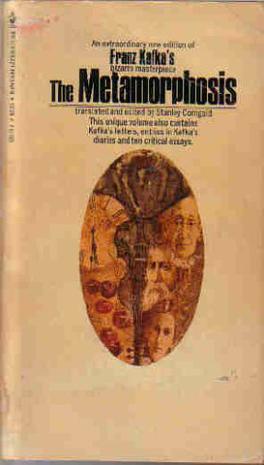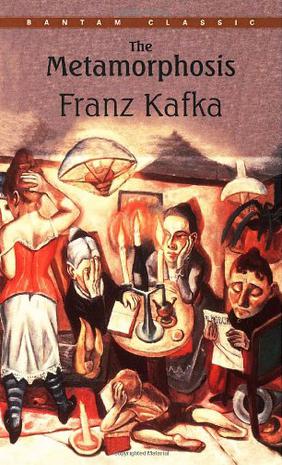The Metamorphosis
Franz Kafka
Writings by and about Kafka and textual notes accompany this translation of his early-twentieth-century work.
The Metamorphosis (in German, Die Verwandlung) is a novella by Franz Kafka, first published in 1915, and arguably the most famous of his works along with the longer works The Trial and The Castle. The story begins with a traveling salesman, Gregor Samsa, waking to find himself transformed into a giant "monstrous vermin" (see Lost in translation, below). It is widely regarded as a highly symbolic tale with various interpretations.
From Publishers Weekly
Kuper has adapted short works by Kafka into comics before, but here he tackles the most famous one of all: the jet-black comedy that ensues after the luckless Gregor Samsa turns into a gigantic bug. The story loses a bit in translation (and the typeset text looks awkward in the context of Kuper's distinctly handmade drawings). A lot of the humor in the original comes from the way Kafka plays the story's absurdities absolutely deadpan, and the visuals oversell the joke, especially since Kuper draws all the human characters as broad caricatures. Even so, he works up a suitably creepy frisson, mostly thanks to his drawing style. Executed on scratchboard, it's a jittery, woodcut-inspired mass of sharp angles that owes a debt to both Frans Masereel (a Belgian woodcut artist who worked around Kafka's time) and MAD magazine's Will Elder. The knotty walls and floors of the Samsas' house look like they're about to dissolve into dust. In the book's best moments, Kuper lets his unerring design sense and command of visual shorthand carry the story. The jagged forms on the huge insect's belly are mirrored by folds in business clothes; thinking about the debt his parents owe his employer, Gregor imagines his insectoid body turning into money slipping through an hourglass. Every thing and person in this Metamorphosis seems silhouetted and carved, an effect that meshes neatly with Kafka's sense of nightmarish unreality.
From School Library Journal
Adult/High School-Gregor Samsa wakes up and discovers he has been changed into a giant cockroach. Thus begins "The Metamorphosis," and Kuper translates this story masterfully with his scratchboard illustrations. The text is more spare, but the visuals are so strongly rendered that little of the original is changed or omitted. Though the story remains set in Kafka's time, Kuper has added some present-day touches, such as fast-food restaurants, that do not detract from the tale. He has used the medium creatively, employing unusual perspectives and panel shapes, and text that even crawls on the walls and ceilings, as Gregor does. The roach has an insect body but human facial expressions. Once he is pelted with the apple, readers can watch his rapid decline, as his body becomes more wizened and his face more gaunt. This is a faithful rendition rather than an illustrated abridgment.
---Jamie Watson, Enoch Pratt Free Library, Baltimore
Book Dimension
Height (mm) 175 Width (mm) 105


